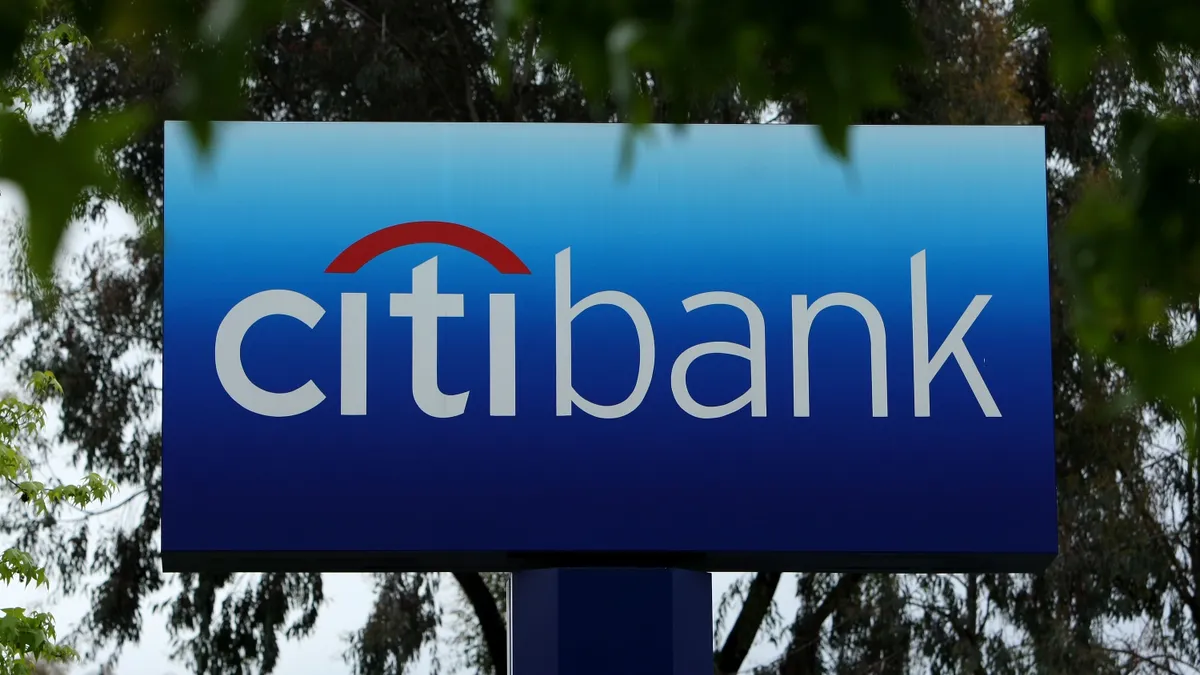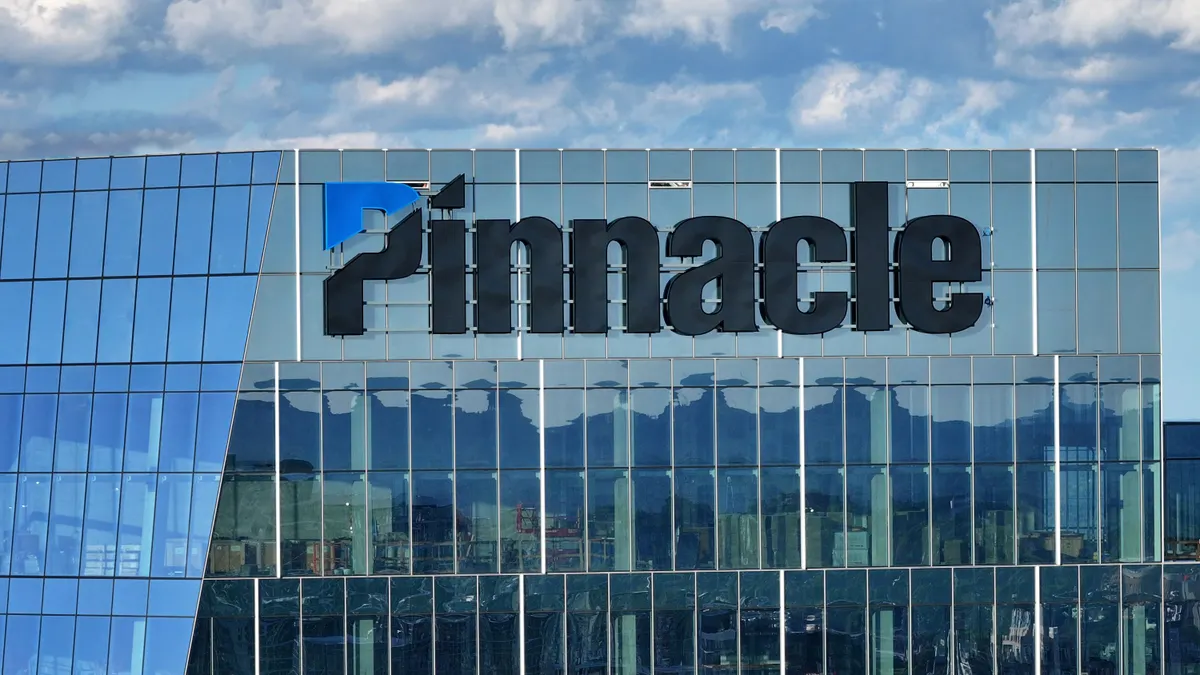Dive Brief:
- At least three privately owned Russian companies — Expobank, Reso-Garantia and Rosbank — have emerged as potential buyers for Citi’s consumer and commercial operations in Russia, the Financial Times reported Friday, citing people familiar with the matter.
- Russia is one of four retail markets — along with Mexico, China and Poland — from which Citi has yet to solidify an exit strategy despite announcing over the past 15 months it would leave. Within three weeks of Russia’s invasion of Ukraine, Citi vowed to stop soliciting new business clients in Russia and to help multinational corporations extricating themselves from business in the country.
- Citi warned investors in a late-February filing that it had $9.8 billion in exposure to Russia at the end of 2021 — by far the highest total of any large U.S. bank. Days later, at Citi’s investor day, the bank’s CFO, Mark Mason, told attendees Citi could lose “a little less than half of that” under a severe stress scenario. “We’ve been managing ... very proactively to bring that number down,” he said. Mike Mayo, an analyst with Wells Fargo, in mid-March, estimated Citi could lose $1.5 billion from its Russia operations.
Dive Insight:
Citi had announced its intention to leave Russian retail banking in April 2021, but Russia’s invasion of Ukraine stalled efforts to sell the bank’s footprint.
Citi’s Russia footprint accounts for $13.5 billion in assets, according to the Financial Times. The bank, at last glance, is continuing to wind down its corporate banking balances and operations as quickly as possible, but is still working with its multinational clients. It likely will keep its license to operate in Russia and maintain a small presence in the country, though a final decision has not been made, the publication’s sources said.
Expobank was Barclays’ Russia subsidiary until 2011, when Igor Kim bought it and grew the institution with acquisitions of Turkey-based Yapi Kredi and assets from what is now NatWest.
Kim said last year he would sell Expobank’s European assets. He’s followed through, in part — spinning off the bank’s Latvian subsidiary. Expobank also owns banks in the Czech Republic and Serbia.
Another potential suitor, Rosbank, once served as Société Générale’s Russian subsidiary. But U.K. sanctions against Rosbank’s new owner, oligarch Vladimir Potanin, might obscure the bank’s chances at landing Citi’s operations. (The U.S. and European Union have not sanctioned Potanin.)
The oligarch had said he was not interested in buying any more banks after taking on a piece of fintech TCS from Oleg Tinkov, who said the Kremlin forced him to sell after he criticized the war.
Reso-Garantia, meanwhile, is 37% owned by French insurance giant Axa. But the larger company withdrew its representatives to Reso-Garantia’s board after the war began, saying it wanted to “minimize” its Russia business. Reso-Garantia already owns a small bank, the Financial Times reported.
Expobank, Rosbank and Reso-Garantia did not respond to the publication’s requests for comment.
Citi declined to comment. However, the bank’s CEO, Jane Fraser, told Bloomberg in May the company was in “active dialogue” with potential buyers of its Russia-based consumer and commercial banking operations.











